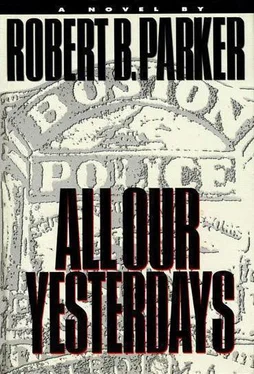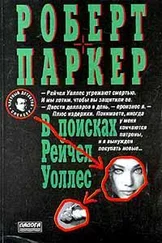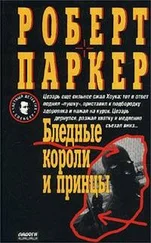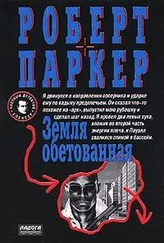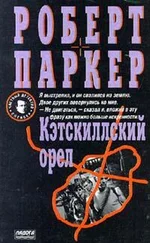“Don’t say,” she gasped, her mouth still pressed against his, “that you weren’t warned.”
Then there was only the inarticulate sounds of their lovemaking, and the twitter of finches in the trumpet vine.
Detectives from G section of the Metropolitan Police were being shot by the IRA on the street in Dublin. Curfew was now midnight to five A.M. Sitting in a café on Grafton Street in the late afternoon, with the high weather clouds scudding fast toward England, Conn drank tea and watched as the city became every day more warlike. The Dublin police were always on the street. And the Royal Irish Constabulary, the peelers, founded by Sir Robert Peel, responsible only to Dublin Castle. British troops moved about in lorries. Aloof from everyone else, brutal, scornful, and many, the mercenaries swaggered through Conn’s city like conquerors. Ex-British enlisted men wore the black-and-tan uniforms for which they were named. Auxiliaries, former British officers, wore dull bottle-green. The men of both forces were combat veterans, blooded in Britain’s colonial wars, hardened in the trenches of Europe. Both forces existed exclusively to suppress the Irish rebellion. The detectives and the Secret Service moved about in civilian clothes, but their weapons too were apparent, deadly angular shapes under tight coats.
Conn sipped his tea and whistled “The Peeler and the Goat” softly to himself, the lyrics playing silently in his head.
Your hoary locks will not prevail,
Nor your sublime oration O
And Peeler’s Act will you transport
On your own information O .
A young medical student named Kevin Barry was hanged one gray morning in Mountjoy Prison. Crowds gathered early on the damp streets outside the prison, before the sun had dried the dew. British soldiers in tin hats stood with fixed bayonets, shivering in the early day. Armored cars moved over the slick streets, forcing passage through the crowd. A woman began to cry. “The poor boy. The poor boy. God help us all!” She swayed as if she would fall and people on either side held her up. Airplanes circled overhead, flying low, unexpected and alien, watching the crowd, like pterodactyls over prey. The mourning of the crowd rose toward them. “Mother of Perpetual Succor help us,” the women cried. “Mother of Perpetual Succor help us.” The Tommies stood motionless, bayonets fixed, eyes straight ahead. Most of them were very young. Conn moved among the people, shoulders hunched against the early chill, hands deep in his pockets. Bad morning for Kevin Barry. Good morning for the cause , he thought. Whenever things looked grim for a free Ireland, the British would pitch in and supply another martyr .
There was a warrant out for Conn. The RIC had captured one of the men from Hollyford, and beaten information from him. So Conn was assigned to IRA headquarters to recuperate. He had few duties as he got well. He attended planning meetings, acrimonious night-long discussions of revolutionary theory. The arguments made him restless. Revolution for Conn was a night on the barracks roof at Hollyford, not extended analysis of Foch’s principles. During most of the planning he thought about Hadley. He lived from house to house, never more than two or three nights. Everywhere he went he carried two guns, the big Webley and a Browning automatic. Everywhere he went he was watchful and thought about Hadley. Days he sat in St. Stephen’s Green, among the orderly flower beds, where nursemaids pushed prams, and shabby undersized men with narrow faces sat on benches and looked at nothing. He watched the people, and kept an eye out for peelers, and mused on Hadley’s thighs and the smooth small slope of her stomach. Sometimes he went to the National Gallery and stared at the paintings hung on high white walls above polished floors in echoing rooms under distant ceilings. He thought of the sounds she made during lovemaking. Sometimes he read in the National Library. Always he was careful. Always he thought about Hadley. He saw her as often as she could get away.
On a soft evening when the spring had flowered into summer, they ate together in the dining room at the Shelbourne Hotel. They sat by one of the high windows that looked out across the traffic at St. Stephen’s Green. Lorries rumbled past with British troops standing on the sides. Armored cars with mobile turrets moved along the north side of the Green. Occasionally one would swerve in toward the sidewalk. People would scatter, and the car would resume course. The Auxies walked in groups. People gave way to them. They were professional fighters, tough and arrogant in their dull bottle-green tunics, tam-o’-shanter caps at an angle. Some Auxies paused to look in at the diners. Conn looked back at them. One of the Auxies, a thick-bodied man with an eye patch, saw Conn looking and stared back at him. They held each other’s stare and then the Auxie tossed his head contemptuously, and they moved on. Conn laughed.
“Stared him down, did you?” Hadley said.
Around them carefully dressed older people were eating dinner. The waiters, in black coats and white aprons, moved humbly among them, never making eye contact, bowing and murmuring and backing away. The Irish make terrible subjects . Conn thought, but they might make grand slaves .
“Yes,” Conn said. “But I had more eyes than he did.”
He laughed again and Hadley laughed with him.
“Ah, Conn,” Hadley said in a stage Irish accent, “you darling boy. Look at you, with your curly black hair and your big smile and a strapping lad you be.”
“A credit to me race,” Conn said.
“And carrying two guns and stare down any Auxie,” she said. “You’re like a poster Irishman.”
“Faith and begorrah,” Conn said, and put his hand on top of hers.
The Shelbourne was dangerous for both of them. Hadley’s husband was well known among the Ascendancy Irish who often dined there, and Conn, were he recognized, would be shot on sight by any of the British officers billeted in the hotel.
“Where shall we go after dinner?” Conn said.
“It’s pleasant,” Hadley said. “Perhaps we can find a quiet place in the Green.”
Conn took a bite of muttonchop and drank some claret. He knew how dangerous it was here, and he knew that the danger was one reason they came. It excited her. For himself Conn knew that it was foolish to take such risks, but he knew also that Dublin was his city, and he was goddamned if he would let a bunch of foreigners decide where he could eat. And he too enjoyed the danger.
“Be nice sometime if we were to do it in a proper bed,” Conn said. He paused and drank some more claret, and patted his lips with the starchy white linen napkin. “With clean sheets, and big pillows. And a door that locked.”
“I rather like the excitement,” Hadley said. “Doing it where someone might come upon us.”
“It’s exciting,” Conn said. “But it lacks a bit in the area of postcoital languor.”
She cut a neat small portion of her salmon and popped it into her mouth, switching the fork from her left hand to her right, the way Americans did. She chewed carefully while he looked at her face, how her big eyes held the light of the candles on the table. The light reflected in the windows now, as the evening came down. He could see them both in the dark window, younger than any of the other diners, sitting close together.
She finished chewing, and swallowed, and said, “I can get languor at home, thank you.”
“And love?”
She smiled.
“So Irish,” she said, and shook her head. “So Irish.”
He wanted to reach across the table and take her and bend her to him and force her to love him as he loved her. He felt his strength, felt the biceps engorge, swollen against the sleeves of his jacket. It was as if, for that moment, he might force her or kill her. He would make her yield... And then it passed... He felt the engorgement drain away... And he felt diminished, as if he himself might drain away too... The faith defended, he put his hand on top of hers again, and patted it contritely. He felt the glassy stare of the stag’s head mounted high on the far wall of the dining room.
Читать дальше
